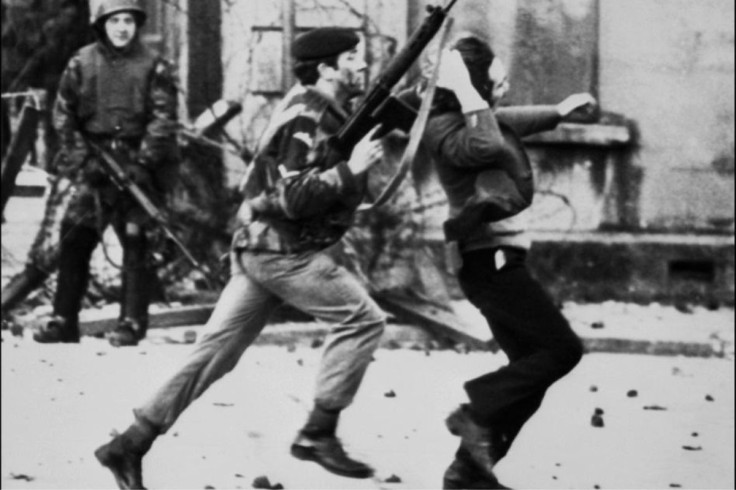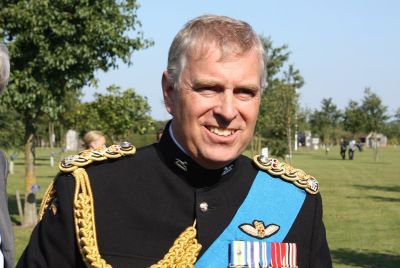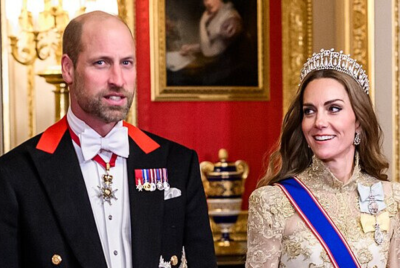Bloody Sunday Murder Trial: Soldier F Receives Verdict — Who Is He and Why Was He Alone In The Dock?
The ex-British paratrooper known as Soldier F has been cleared of murder and attempted murder charges

A former British soldier known only as Soldier F has been acquitted at Belfast Crown Court of murder and attempted murder over the 1972 Bloody Sunday shootings in Derry.
The ruling ends one of the most high-profile Troubles-era prosecutions in Northern Ireland. Soldier F, a former lance corporal in the Parachute Regiment, had been accused of killing two men and attempting to kill five others when troops opened fire on unarmed demonstrators.
The verdict has revived painful questions about justice, accountability and the limits of pursuing conflict-era cases more than 50 years later. Families of those who died say the outcome deepens their sense of unfinished business, while veterans' groups argue that ageing soldiers should not face prosecution for wartime actions.
Who Is Soldier F and What Was He Charged With?
Soldier F served with the Parachute Regiment in Londonderry in January 1972 during a civil rights march that turned deadly when troops fired on protesters. According to court documents, he faced two counts of murder for the deaths of James Wray and William McKinney and five counts of attempted murder relating to others, including Joseph Friel and Michael Quinn.
Because of legal protections, his identity remains secret. Throughout the non-jury proceedings he sat behind a curtain to shield his face from public view, according to The Guardian. The trial represented an effort to hold one man accountable even though many soldiers were involved in the shootings. The decision has divided opinion among victims' families and campaigners.
Why Was He Tried Alone?
Decades after the massacre, Soldier F became the only member of the regiment to face criminal charges. The move followed the 2010 Saville Inquiry, which concluded that the killings were 'unjustified and unjustifiable'. The British government issued a formal apology that same year.
Prosecutors argued that testimony from former soldiers and military records placed him at Glenfada Park North, where several victims were shot. However, Reuters reported that the judge found much of the evidence unreliable, weakened by the passage of time and the deaths of key witnesses. He said the Crown's case fell well short of proving guilt beyond reasonable doubt.
Legal analysts say he was tried alone partly for practical reasons. After more than half a century, memories had faded and only one defendant could realistically be prosecuted under principles of individual rather than collective responsibility, according to AP News. The trial illustrated how historical prosecutions struggle to balance the desire for justice with evidential fairness.
Verdict and Reactions
On 23 October 2025, Judge Patrick Lynch found Soldier F not guilty on all seven counts but criticised the soldiers' conduct on Bloody Sunday. He said they had lost discipline and that those responsible should 'hang their heads in shame'.
Relatives of the victims described the outcome as another betrayal. One family member said Soldier F had been discharged from the dock but that it was far from an honourable discharge. Veteran groups welcomed the ruling, saying it vindicated concerns about prosecuting decades-old cases. The Independent reported that the British government noted the verdict and reaffirmed its commitment to addressing the legacy of the Troubles.
I welcome todays common sense judgement. Soldier F trial has been a painful and protracted process. There needs to be a better way of dealing with the legacy of the past and to ensure no rewriting of it. pic.twitter.com/xwqAKvDgHZ
— Gavin Robinson (@GRobinsonDUP) October 23, 2025
Bloody Sunday protestors...you lost, im disgusted our government doesnt protect our soldiers. I dont agree with murder or killkng civillians but the soldiers were sitting ducks and were getting attacked, murdered, blown up, intimidated, followed home daily...
— MPBAZZ (@mpbazz) October 24, 2025
The shame of the British army and collusion of the British government that let the paras commit murder on bloody Sunday
— liam o'kane (@liamokane69) October 23, 2025
A Continuing Reckoning
The case has reignited debate over how Northern Ireland should confront unresolved crimes from the conflict. Legal experts say that prosecuting one individual cannot capture the full scale of Bloody Sunday, yet the absence of convictions continues to frustrate families seeking accountability.
While the court found the evidence insufficient for conviction, the verdict highlights the difficulty of achieving justice when historical events are revisited generations later. The legal process has ended, but the question of responsibility for one of the darkest days in modern British history remains unresolved.
© Copyright IBTimes 2025. All rights reserved.



















